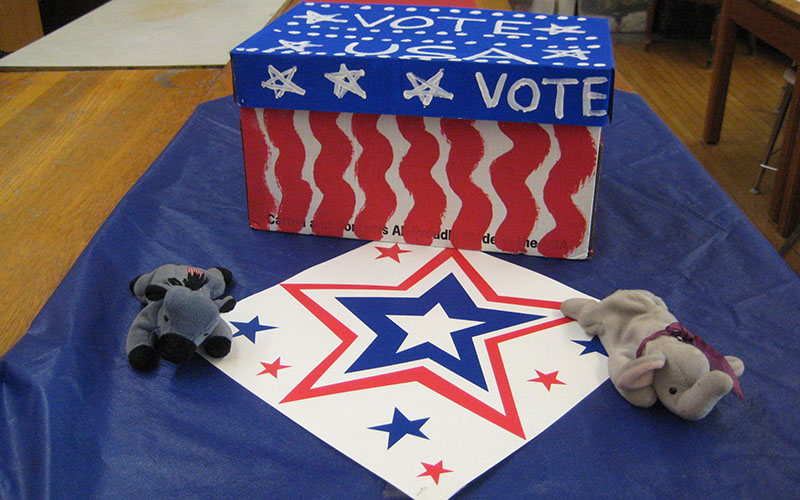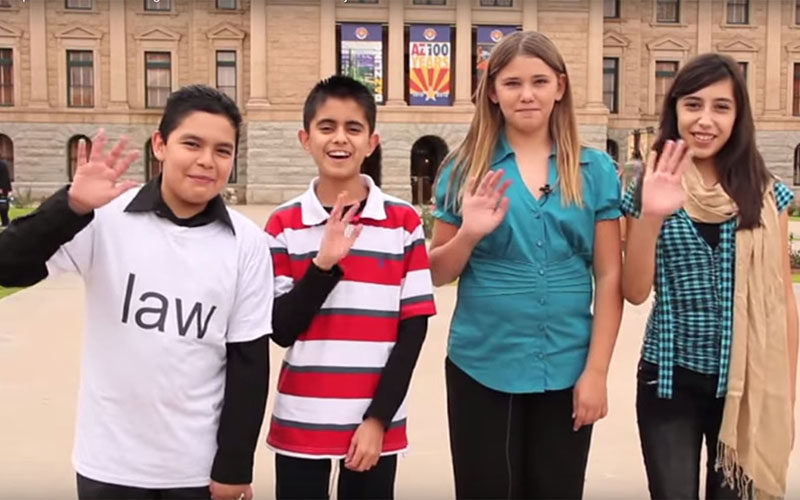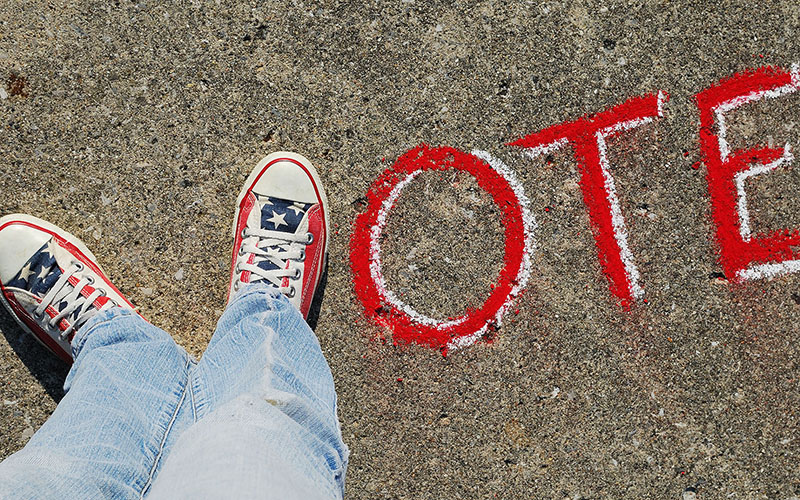
A Center for Information and Research on Civic Learning and Engagement report said civics education like that in Arizona schools leads to greater engagement later in life. (Photo by BarbaraLN/Creative Commons)

Arizona students participate in a civic engagement exercise at the State Capitol. Arizona won praise for its policies in a national report on states’ civics education programs. (Photo courtesy Arizona Capitol Television)

In addition to getting instruction in civics, for the first time this year Arizona high school seniors will have to pass a citizenship-style test based in order to graduate. (Photo by Theresa Thompson/Creative Commons)
WASHINGTON – Arizona got high marks Thursday in a national study of how well states educate students on voting, parties and the political process, early training that analysts say leads to greater voter participation later on.
The report by the Center for Information and Research on Civic Learning and Engagement, or CIRCLE, said Arizona is one of only eight states with standards requiring public schools to teach about political parties, political ideologies, issues and platforms.
The report also said Arizona was one of the few states whose teachers delve into ideologies behind the major political parties.
“This is particularly important because with news media being so confusing and complex, young people need to understand the platform underneath,” said CIRCLE Director Kei Kawashima-Ginsberg. “Otherwise politics becomes all about personalities saying their personal opinions or voters blindly following partisan lines.”
Kawashima-Ginsberg and one of the report’s co-authors said that while true civics education requires blunt conversation on sometimes-touchy subjects, it is possible for teachers to encourage political debate that is not partisan.
“The role of public education has always been to prepare American citizens to participate in the democracy they’re inheriting,” said co-author Paula McAvoy. “So we need to monitor whether states are preparing their students for this task.”
The report did not take into account the new Arizona law that will require high school seniors, beginning with this school year, to pass a civics test based on the U.S. Immigration and Naturalization exam in order to graduate.
Shirley Sandelands, president of the League of Women Voters of Arizona Greater Tucson chapter, says requirements like the citizenship test will “naturally force classroom discussion and conversation about relevant issues and then students will go onto become voters.”
“Students and schools are very affected by decisions made by elected officials,” said Sandelands, a former high school teacher. “If they understand who the decision-makers are, from presidents to school board members, they can use their vote to enact change and make the entire system better.”
When asked about the citizenship test requirement, McAvoy said she hopes it does not get in the way of deep and meaningful classroom discussions about political parties and ideologies.
“Sometimes inexperienced teachers feel they have to teach to a test, and a series of citizenship questions won’t help students understand where their views fit into the current political landscape,” she said.
That was one area the CIRCLE report flagged as an issue for most states, including Arizona. Only Rhode Island has standards that encourage students to analyze political ideologies and parties in relation to personal experiences.
“And this is really the key issue: Students need to understand how they fit into the political landscape,” McAvoy said.
At the Arizona Department of Education, spokeswoman Alexis Susdorf said it’s “great” that the report recognized Arizona’s efforts on civic engagement, something she said is at the forefront of Superintendent Diane Douglas’ agenda.
Susdorf pointed out that the department on Friday will honor 32 public schools for their comprehensive programs for civics, government, history, economics, geography, law and democracy education. She said the fourth annual ceremony is an example of “the continued dedication to civic education by the department.”
The Arizona Department of Education provides conferences, technical assistance, resources and professional development to teachers covering civics, American government and political ideologies, Susdorf said.
In this presidential election year, the Arizona Secretary of State’s Office is expecting voter turnout as high as 80 percent, with or without civics education, said Matthew Roberts, a spokesman for the office.
“It’s purely speculative to say civics education or a test will directly translate to voter turnout,” Roberts said, “but it opens and door and lays a foundation for people to understand government, and that’s never a bad thing.”